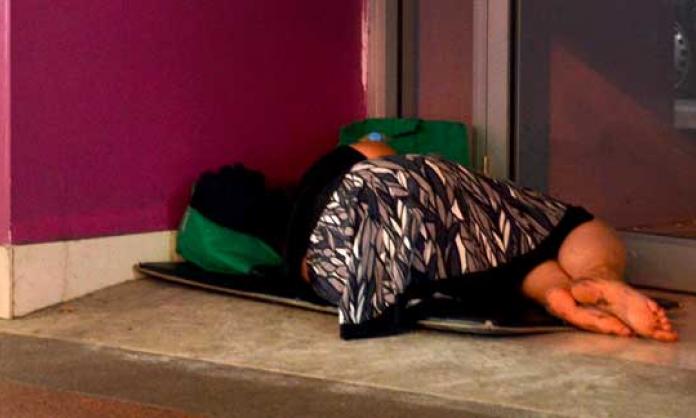People are being turned away from community services in alarming numbers, despite life getting harder for those on low incomes.
The Australian Community Sector Survey, released in December by the Australian Council of Social Services (ACOSS), reveals that 80 percent of community service organisations are unable to meet demand.
ACOSS CEO Cassandra Goldie warned that deep funding cuts proposed by the federal government will only increase the strain on the sector. “Our findings are deeply concerning and should ring alarm bells”, she told reporters at the survey’s launch at the Weave Youth and Community service in inner Sydney.
“On the one hand we know that the government is proposing to bring in half a billion [dollars] in cuts to services for Aboriginal and Torres Strait Islander individuals and communities. We also know the federal government is determined to pursue, we believe, over a quarter of a billion in cuts to community services generally,” she said.
“We’re really concerned about the cuts to the community services sector, and we know that we can only support about three quarters of the referrals that we get”, said Shane Brown, CEO of Weave, a community organisation that provides services to socially excluded young people, women, children and families in Sydney. “About 70 percent of the people we work with are Aboriginal and we’re deeply concerned about the federal cuts that might happen to Aboriginal funding … There were originally 150 funded programs, they’re now down to 5 funded programs in the whole of Australia.”
The vast majority of community sector workers surveyed said that, for sole parents, the unemployed and those on low incomes, the quality of life has fallen over the past year.
“We know for example that the amount of food aid that we have to provide has increased by 30 percent in the last 5 years”, Brown said. “That is a big indication that people don’t have enough money. These are people that are living in public housing and just can’t afford food.”
Accommodation services are particularly stretched. “We have great difficulty supporting young people into housing. There just isn’t any housing available … The average cost of living in Sydney is about $230 a week, and if you’re on a benefit of $200 a week you can’t afford a room,” Brown told Red Flag.
“I don’t know what’s happened to the housing agenda, I don’t know what’s happened to public housing, but every day I get up and think to myself, ‘When is the government going to start to build public housing again?’”
Many of the proposed budget cuts have yet to impact on social services, but changes to the income support system by successive federal governments have been a major driver of increased stress and poverty among people on low incomes. “The Newstart [unemployment] allowance is $36 a day because of the hopeless indexation”, Goldie told Red Flag. “More and more single parent families have been taken off the single parenting payment, and this has meant in the order of $60 to over $100 a week less income, you can imagine the big difference that made.”
Scott Morrison has now been appointed community services minister, and funding cuts have been announced for National Shelter (Australia’s peak housing advocacy organisation), Community Housing Federation, and Homelessness Australia. The federal government is crying poor, but social workers are far from convinced.
“Corporate welfare is the thing I’m most concerned about”, Brown said. “The amount of money spent on corporate welfare, propping up banks and other institutions, is much greater than what is spent on the community sector.”
One single mother who relies on community services told Red Flag: “It’s awful … These cuts won’t just affect the people using the service – it hurts the community as a whole.” She had been with Weave Youth and Community services for 2 years. “I sought help elsewhere but they couldn’t see me because of the demand”, she said.
“To think that in the future they might not be able to offer these services is just wrong … it has meant the world to me.”








